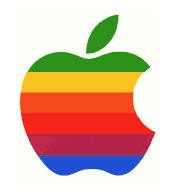
Recently, Apple launched the latest in the series of its products, the “New iPad”. Unexpectedly, this was not named the “iPad 3”, deviating from the ascending numerical format of successive models that consumers had become familiar seeing with the Apple iphone. As expected however, this product began selling out in stores within minutes of the commencement of sales and store owners were struggling to keep up with demand during its first few days on sale.
The innovations, which started in 2006 with the birth of the iPhone, have undoubtedly led to an explosive growth in the financial fortunes of Apple. With burgeoning cash reserves and a market capitalization of over $600billion, Apple is arguably the richest company in the world. Recent analysis suggests that it now has larger cash reserves than the entire US treasury, something that reflects the power that this individual company wields within the largest economy in the world. This has also ushered in exceptionally good times for investors as Apple’s share price has hit new record levels, trading at around $605.
The going is very good at the moment, but the question must be asked, how long can it keep outperforming the rest of the market? The major problem that Apple may now be facing with its revolutionary products is the copy-cat tendency for new technologies to be rivaled very quickly.
Take the new iPad as a case in point. Is there really anything ‘new’ in the ‘New iPad’? I think curiosity is what is still driving sales here, but it is possible that ‘iPad fatigue’ may set in given the sheer competitiveness in the technology market. The emergence of new competitors offering similar, lower cost, tablet technology is an example of where this may occur. Also, Apple has some big rivals who have the market power to take a huge share of the market if they create the right tablet. Amazon (AMZN) is a good example of a strong competitor moving into position to expand its kindle in to tablet technology. Furthermore, it will not be long before people look for the latest exciting product within the industry. The tight hold that Apple hold over its Itunes and applications may also prove unattractive in light of the free-flowing android-based hardware supported by Google’s (GOOG) android market.
Do I recommend Apple as a buy at this point? I think prices have gone too far for any reasonable investor to try to profit from a bullish run without a sizable correction. The only factors that would propel a bull run at this stage are the quarterly reports and, in particular, the sales numbers. Considering that the market expects the company to outperform, any slowdown would be a major shock. These are the key figures that will tell us if interest in Apple’s products are continuing higher, have reached a plateau or are showing signs of dropping off. I believe the interest in Apple’s products will hold firm in 2012, but it is very difficult to see this continuing in 2013. Investors should not lose sight of the fact that Apple is involved in several lawsuits with its main competitors who produce devices based on the Android operating system.
Apple is a proactive and forward-thinking company. However, although it is possible given the company’s history, it may prove very difficult for Apple to offer another significantly iconic device in line with expectations. Apple may also falter with its lack of penetration in the developing world which at the moment is fairly poor relative to its competitors. The Android devices have taken a very firm foothold, primarily due to price, and it will be difficult to displace their popularity. Apple needs to reverse this trend to keep shareholders smiling and to maintain an expansion in handset sales beyond 2012.

Comments (No)